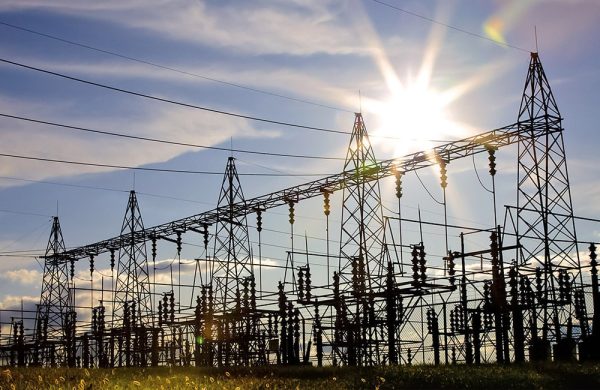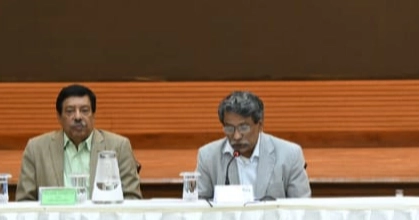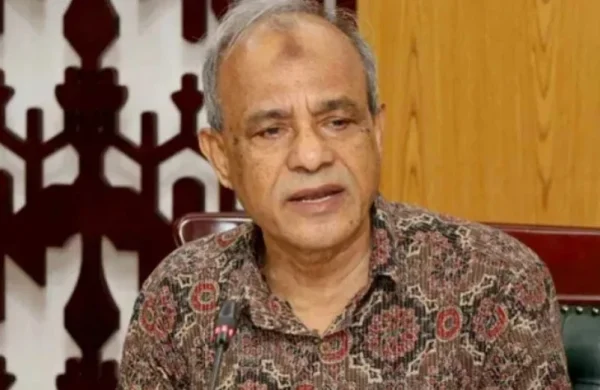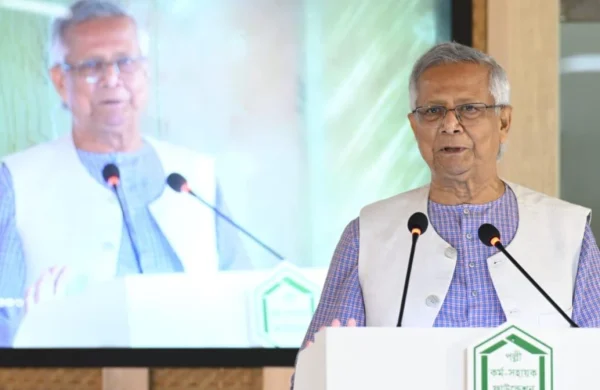Power sector destroyed by ‘5 Pandavas’
- Update Time : Saturday, May 3, 2025

Staff Correspondent:
They were widely known as the “Five Pandavas” in the power sector. These five individuals were the key controllers of all financial matters in the sector. Whether it was the approval of a project, the appointment of personnel, or any financial transaction related to electricity, the final decision came from them.
They ran the country’s power sector and looted vast amounts of money in the process.
Behind them stood three godfathers – to whom they paid commissions, ensuring that they were beyond accountability.
The Five Pandavas of the power sector were – former State Minister for Power Nasrul Hamid Khan Bipu, former Principal Secretary to Sheikh Hasina Dr Ahmad Kaikaus, former SDG Coordinator and Principal Secretary Abul Kalam Azad, Aziz Khan of Summit Group, and S Alam of S Alam Group.
These five are seen as the main architects of the destruction of Bangladesh’s power sector. Every initiative taken in this sector was allegedly designed for their own looting purposes.
Wherever they found opportunities to plunder, they took full advantage of it. While they beat the drum of “self-sufficiency” in electricity, they were in fact bringing ruin to the power sector.
Investigations have revealed that these five individuals had three godfathers. By paying commissions to these godfathers, the fallen autocratic regime was able to loot the power sector without restraint.
These three mafia-like godfathers were: former Prime Minister Sheikh Hasina’s younger sister Sheikh Rehana, her son Sajeeb Wazed Joy, and Rehana’s son Radwan Mujib Siddiq Bobby.
These godfathers operated under the familial protection of the former prime minister. The scale and severity of the looting in the power sector are so vast and destructive that the full story or history has not yet been uncovered.
However, the available figures are not just against the national interest, they are truly alarming. The pillaging of Bangladesh’s power and energy sectors mainly occurred in five key areas: quick rental projects, dependency on India for power, looting in production and distribution, Rooppur Nuclear Power Plant Scandal and LNG scam.
QUICK RENTAL PROJECT HORRORS
In the past 15.5 years, over 100 private power plants were built without any competitive bidding. Most of them were ineffective. While their official generation capacity is claimed to be 25,000 megawatts, load-shedding has persisted.
Meanwhile, the Power Development Board (PDB) has no accurate estimate of actual national electricity demand.
According to data from relevant sources, during the three terms of the Awami League government, the total expenditure in the power sector reached $28.3 billion, which, at the current exchange rate ($1 = Tk118), amounts to Tk3.34 trillion).
Of this, Tk1 trillion was looted just under the name of “capacity charges” – fees paid to private plants simply for being ready to produce electricity, even if no electricity was actually generated.
Most of these private plant owners were Awami League leaders or their close associates. The concept of capacity charges was the brainchild of Abul Kalam Azad, a trusted bureaucrat of the then-prime minister.
Quick Rental became synonymous with “Quick Money”. This idea brought Azad closer to Sheikh Hasina. He was appointed secretary of power and, under his recommendations a legal indemnity law was enacted – ensuring no accountability for these deals. If one paid a commission to Azad, they’d get a Quick Rental licence.
Numerous leaders and loyal business associates of the Awami League received these licences. Even Otobi, a furniture company, was allowed to venture into private power production under this corrupt system.
Some of the more known licence recipients were – Jahangir Kabir Nanak, Mirza Azam, Omar Faruk Chowdhury, Alauddin Nasim Chowdhury, and late Aslamul Haque, among 63 other party members.
Once they got the licences, they sold them off for crores of taka. Each plant reportedly changed hands three to four times, often being sold multiple times.
For example: Nanak received a license and sold it to Aslamul Haque for Tk50 million. Haque then sold it to Sikder Group.
Nasrul Hamid’s younger brother, Intekhabul Hamid Apu, received two power plants. Others who received one each include: Former member of parliament (MP) Nahim Razzaq, Ex-BCB director Jalal Younus, Ex-Foreign Minister Hasan Mahmud, Abdus Salam (brother of former Land Minister Saifuzzaman Chowdhury Javed), Former State Minister for Foreign Affairs Shahriar Alam, Ex-MP Tanvir Hasan (Chhoto Monir) from Tangail, Former Religious Affairs Minister Faridur Rahman, former MP Habibur Rahman from Sylhet, and MP Enamul Haque from Rajshahi region.
Laws were specifically passed to ensure this looting under the guise of Quick Rental. It didn’t matter whether the plants produced electricity or not, the government was obliged to pay them capacity charges regularly.
The looted money was split into three portions: The largest share went to the three godfathers. Then the Five Pandavas and private power plant owners got the rest.
Speaking on the issue, executive director of Transparency International Bangladesh (TIB), Dr Iftekharuzzaman, said, “Over the past 15 years, the biggest corruption in the power sector has occurred in the name of capacity charges. Due to special laws, there has been no open competition. There has been significant irregularity and corruption in this sector.”
It is reported that from the fiscal years 2008-09 to 2021-22, over a span of 14 years, a total of Tk89,740 crore was paid as capacity charges to rental, quick rental, and independent power producer (IPP) plants.
In a report published last July by the Implementation Monitoring and Evaluation Division (IMED), it was mentioned that the government spent Tk90,000 crore in capacity charges over 14 years. According to an official from the Power Development Board (PDB), when including the fiscal years 2022-23 and 2023-24, the total amount exceeds Tk1 trillion (1 lakh crore).
According to available data, during this period, one of the so-called “five Pandavas,” Summit Group, received approximately Tk10,623 crore in capacity charges, which is around 12% of the total expenditure. Summit’s main patron was Sajeeb Wazed Joy, son of Prime Minister Sheikh Hasina. It was due to Joy’s influence that Summit Group became a dominant force in the power sector.
In second place is UK-based company Agrico International, which received Tk7,932 crore. It is alleged that Agrico International, under the patronage of Radwan Mujib Siddiq Bobby, looted the power sector in Bangladesh. A major portion of Agrico’s gains went to Bobby. Agrico’s shadow agent in Bangladesh was S Alam.
In third place is the Chinese company Erda Power Holdings, which received Tk7,523 crore. Erda Power’s unofficial agent in Bangladesh was Abul Kalam Azad.
The fourth position goes to local company United Group, which received Tk6,575 crore, while the fifth place, Rural Power Company Limited (RPCL), received Tk5,117 crore.
DEPENDENCE ON INDIA IN THE POWER SECTOR, NATIONAL SECURITY AT RISK
Over the past several years, Bangladesh’s power sector has shifted from self-reliance to notable dependence on India. The primary reason for importing electricity from Adani and Reliance was the commission paid to the influential godfathers. It is alleged that Sheikh Rehana received a portion of this commission. In the last 9 years, capacity charges totaling around Tk11,015 crore had to be paid due to electricity imports from India.
Electricity imports from India began in the fiscal year 2013-14, during which the capacity charge was approximately Tk501 crore. In the following fiscal year (2014-15), increased imports led to capacity charges rising to Tk922 crore. In 2016-17, capacity charge payments increased further to Tk1,068 crore. As imports rose slightly in 2017-18, so did the charges – Tk1,078 crore. In 2018-19, another deal increased imports further, raising the capacity charge sharply to Tk1,553 crore. In 2019-20, it stood at Tk1,493 crore; in 2020-21, it rose to Tk1,805 crore; and in 2021-22, it was Tk1,724 crore. For the combined fiscal years of 2021-22, 2022-23, and 2023-24, an additional Tk4,000 crore in capacity charges has been paid for imports.
LOOTING IN POWER PRODUCTION AND DISTRIBUTION
Beyond power generation, thousands of crores of taka have been spent on projects for electricity distribution and transmission line construction. Significant expenses have also gone into meter purchases and expanding power access nationwide to ensure 100% electrification. Moreover, costly projects have been undertaken in the name of gas well drilling across various fields.
However, accurate accounting for these expenditures is lacking. The drilling of 20 wells was awarded to Russia’s state-owned company Gazprom at over Tk20 million per well, while Bangladesh Petroleum Exploration and Production Company Limited (BAPEX) could reportedly do the same work for Tk10 million per well.
The government-issued white paper on corruption alleged irregular recruitment in the power and energy sectors – without proper announcements and involving unethical financial incentives. The report states that tenders were arranged in the name of competition between companies from the same syndicate. Close associates of high-level ministry officials were favoured with subcontracts (where main contractors outsource the work to smaller ones).
A significant portion of this embezzled money was allegedly taken by State Minister for Power and Energy Nasrul Hamid Bipu. Part of the money was also spent on operating Bobby’s CRI (Centre for Research and Information).
ROOPPUR NUCLEAR POWER PLANT
Ousted Prime Minister Sheikh Hasina has allegedly embezzled more than Tk59,000 crore from the Rooppur Nuclear Power Plant project. Her son Sajeeb Wazed Joy and niece Tulip Siddique helped and were complicit with her in the scam.
The Global Defense Corp exposed the story on 17 August.
The report states that Sheikh Hasina and her family members embezzled more than $5 billion from a project to buy a Soviet-era nuclear reactor from Russia’s Rosatom. The power plant cost $12.65 billion to build.
The project implementing agency Rosatom assisted Sheikh Hasina in transferring this $5 billion from various Russian slush funds held in Malaysian banks to various banks. Sajeeb Wazed Joy and his niece Tulip Siddique mediated this.
The report also says that the cost of building the power plant with Russian assistance is estimated at $12.65 billion which is much more than the market price. The project implementing agency, Rosatom, gave Sheikh Hasina the opportunity to embezzle $5 billion from this budget through a Malaysian bank.
Out of the money, Tulip, Sheikh Rehana and some of their members received 30% of the laundered money.
Tulip Siddique accompanied Sheikh Hasina during her meeting with Russian President Vladimir Putin in 2013. Global Defense Corp says she also brokered a billion-dollar arms deal between Dhaka and Moscow at that time.
Tulip, her mother Sheikh Rehana, and her uncle Tariq Ahmed Siddique who is also the then Prime Minister’s defense adviser, launched a fake company called ‘Prachaya Limited’ in 2009. They also have a company called ‘Jumana Investment’ in the United States.
Sheikh Hasina used this company to launder money to offshore accounts in various countries. Their company, linked to a cheating fund company called Destiny Group, laundered about $900 million to various countries, including the UK.
In a research report published on 23 March 2018, the German think tank Bertelsmann Stiftung listed Bangladesh as an ‘authoritarian regime’. Due to the strict intervention of the authoritarian regimes, various institutions, including the judiciary, have become mere puppets.
LNG SCAM
Although the fascist Awami League government had been withholding gas connections for a long time citing gas crisis, some connections were given to industries on special consideration. Former adviser Tawfiq-e-Ilahi was the head of a high-level committee in this regard. This committee is accused of taking bribes for gas connections.
The strife relation between former energy adviser Tawfiq and State Minister for Power and Energy Nasrul Hamid over the matter was an open secret.
Nasrul’s younger brother Intekhabul Hamid Apu, a nephew of former Bridges Minister Obaidul Quader, and Keraniganj Upazila chairman formed a syndicate in the energy sector.
This syndicate helped various domestic and foreign companies to secure contracts in big projects of DPDC, PDB, DESCO, REB and NESCO’s advanced metering, meter installation, billing projects and network security.
One of such companies is Powerco International which got contracts for an LPG project with two foreign companies. So far, this project has not seen the light of day. There are allegations that the key person of Powerco is one of the uncles of Nasrul, Kamruzzaman Chowdhury.
















